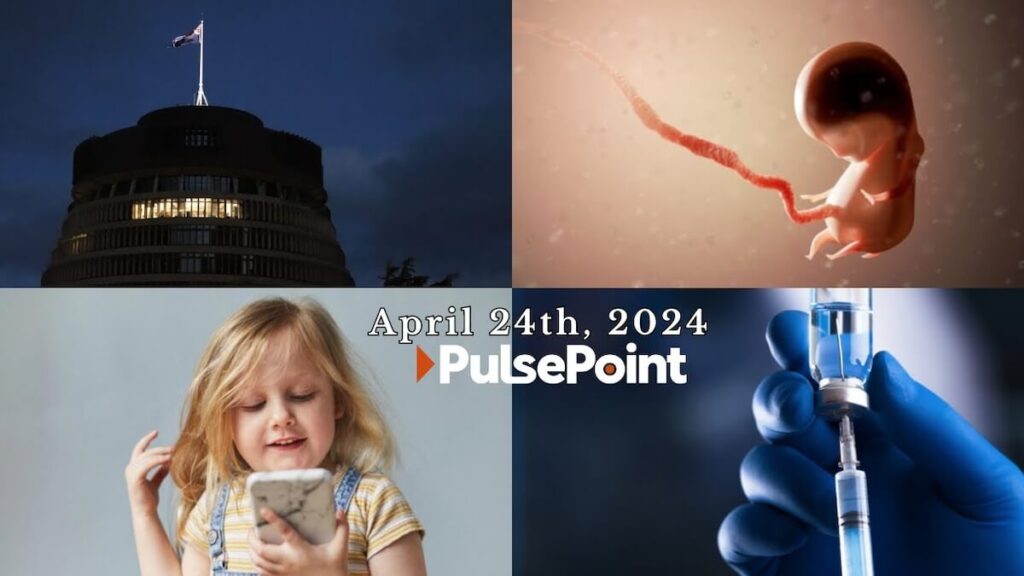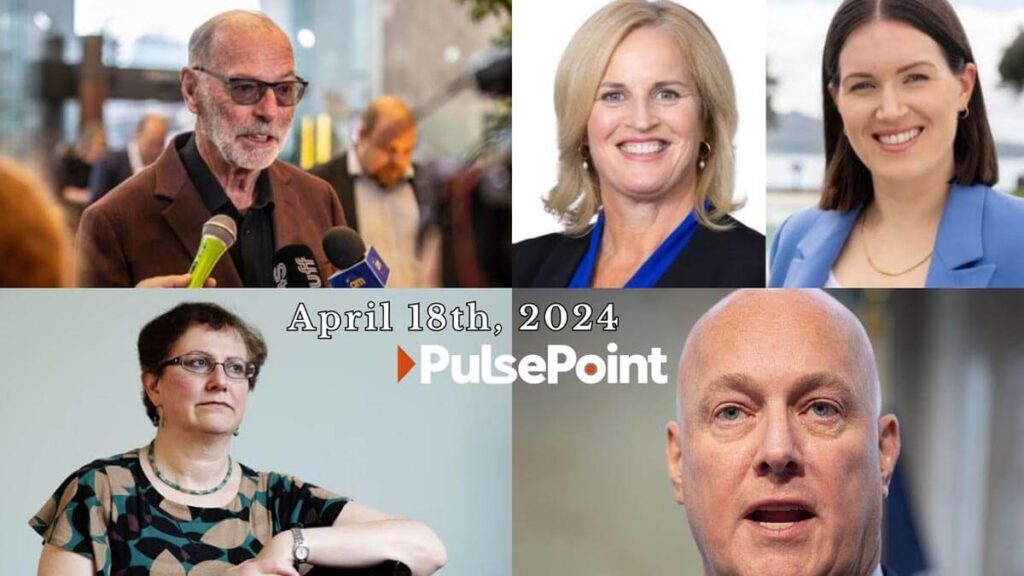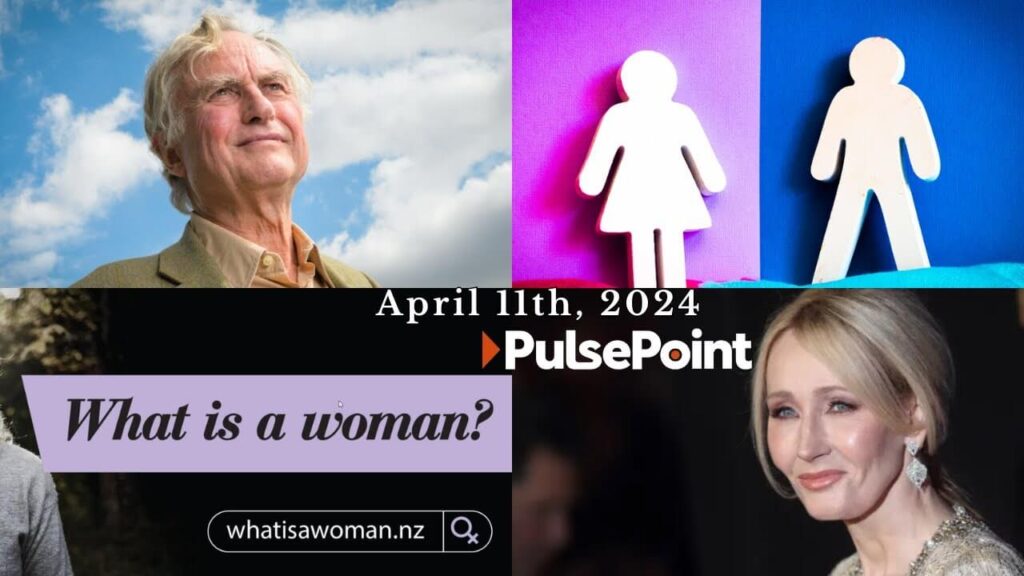Welcome to PulsePoint Episode 2 – the latest media stories and research related to family and society that you need to know about – issues from both New Zealand and overseas that the Family First team have been monitoring and researching over the last week. It’s time to cut through the spin and uncover the real issues.
On this episode of PulsePoint:
1. Support for gay marriages in the United States decline.
2. Canada proposes Hate Speech Laws
3. Kiwis want more choice in their news channels.
4. Winston Peters is still targeting the radical RSE curriculum.
5. The trans suicide claim is debunked in a major study.
6. Marriage promotes “White Supremacy”, according to a white university professor.
You can check out all these stories and more on our website FamilyFirst.nz.
We’ll keep watching the news… so that you don’t have to.
TRANSCRIPT:
Episode 2(PulsePoint)
In this episode of PulsePoint, we’ll update you on:
- SUPPORT FOR GAY MARRIAGES IN THE US DECLINE.
- Canada proposes radical Hate Speech Laws
- Kiwis want CHOICE in tv news.
- Winston Peters is still targeting the radical RSE curriculum.
- The Trans suicide claim is debunked in a major study.
- And finally, Marriage promotes “White Supremacy” according to a white university professor.
Intro: Welcome to PulsePoint – the LATEST media stories AND research related to family and society that the Family First team have been monitoring and researching over the last week. It’s time to cut through the spin and uncover the REAL issues.
I’m Tumby Stowers.
- Support for same-sex marriage dipped last year in the US for the first time. What is MOST significant is that the researchers from Public Religion Research Institute found although a greater share of younger adults SUPPORT same-sex marriage compared with older ones — and a greater share of younger adults identify as some form of LGBTQ— the share of young adults who supported same-sex marriage declined from a record high of 79% in 2018 to 71% last year.
The blue line in the graph is 18–29-year-olds – you can see the drop there – but ALL other age groups have shown SOME decline for the first time.
The CEO of the polling company said “There’s been more of an emphasis on this idea that LGBTQ rights have gone TOO FAR in America — they’re hearing that in CHURCHES that are conservative, they’re seeing on SOCIAL MEDIA that’s conservative, on far-right news sources that are conservative, And THAT message is resonating.”
Recent New Zealand polling by Talbot Mills shows that just over half – 56% – support or strongly support gay marriage.
The strongest support came from Green, Labour and ACT voters.
Despite how the media may present it, the debate about whether marriage should be redefined is not settled.
- The Canadian government is proposing a new law regulating the Internet and criminalising speech.
The Online Harms Act or Bill C-63 aims to address harmful content online that incites violence, child sexual abuse and revenge porn by strengthening penalties and reporting mechanisms.
The second aim of the bill, which is where it gets disastrous, is to target hate speech.
As with all laws on this topic, hate speech is vaguely defined in the Canadian bill, but what is clear is that offensive speech online can be a hate crime. Under the bill, judges and even the police can send people to jail for hate speech crimes, which includes life imprisonment. Without clear definitions of what constitutes hateful speech, speech challenging transgenderism or even quoting the Bible could be criminalised.
Whilst the bill has commendable intentions, like addressing the rise of antisemitism and protecting children, it is a trojan horse for government overreach and a deliberate attack on freedom of speech and expression.
Have a watch on what Conservative Leader Pierre Poilievre has to say on this and his rebuke of Prime Minister Trudeau…
- Our mainstream news organisations are struggling with transitioning away from linear television programming (that is, sitting in front of the tv at a specific time to watch a programme) towards 24/7 digital media that we can watch on demand at a time that suits us.
By the time we reach 6pm each day, most people have already received numerous news updates from many different sources, hence the daily ritual of sitting down in front of our TVs watching 1News or Newshub has largely disappeared from our lives.
So, do Kiwis still want a choice of news channels? The answer is yes, according to new research conducted by Research New Zealand. Of the 1000 people surveyed, 67 percent believed it was important, or extremely important, to have a choice in television news channels.
But does this really tell us that much, as who doesn’t want choice? The reality is we already have a broad range of news sources, just not necessarily linear TV channels. News can be easily obtained across many different mediums at any time of the day.
The survey showed there was not one single medium people were going to for their news. One could also argue that despite a broad range of news channels we don’t have a corresponding broad range of viewpoints – there is far too much groupthink amongst the mainstream media.
Finally, the biggest concern of survey respondents was the spread of fake news and misinformation, followed by the news quality, and falling trust in news in general. We could debate who is actually spreading the misinformation, and does our mainstream media add to this problem by not reporting both sides to many news stories.
- The Deputy Prime Minister Winston Peters gave his State of the Nation speech last weekend in his role as leader of the NZ First Party.
Although there was much coverage of other issues such as song choice, we were pleased to see Mr Peters reiterate what was in the coalition agreement between his party and the National party.
The agreement said, “Refocus the curriculum on academic achievement and not ideology, including the removal and replacement of the gender, sexuality, and relationship-based education guidelines.” A superb policy that we have been campaigning for over the past 5 years.
In the speech at the weekend, Winston Peters repeated his commitment to this policy..
Video 2 Winston Peters VIDEO attached.
It is now up to us and parents throughout New Zealand to ensure that this policy is fully implemented by the Government and honoured in every school – especially the schools that your children attend.
- One of the most common statements made by transgender activists in relation to trans identifying children is —‘Would you rather have a trans kid or a dead kid?
This CLAIM is used to engender fear and anxiety in parents. It also figures in the practice of schools keeping a child’s social transition secret from parents, in the shutting down of debate about the safety of puberty blockers, and in the promotion of bans on so-called “conversion therapy”.
In an interview with 18-year-old detransitioner Chloe Cole from California, Bob McCoskrie asked her about this..
VIDEO – 2023 chloe cole suicide
CLAIMS of attempted suicide among trans-identifying youth are typically based on Low-quality anonymous online self-report surveys with NO follow-up checks.
But now, landmark research from Finland released earlier this year – but conveniently ignored by our mainstream media – found that the suicide risk in a large group of trans-identifying youth was predicted by the mental health problems that often accompany gender distress, NOT by the gender distress itself.
This large and significant study vindicates Finland’s 2020 adoption of a more cautious treatment policy which first targets psychiatric, social and educational problems before any use of “experimental” affirmation with hormones or surgery.
Of course, this is consistent with our approach to eating disorders such as anorexia nervosa. We heal the mind rather than cutting at the body. This latest study reinforces that approach and debunks the suicide trope.
- Finally, according to a University professor, the concept of marriage promotes white supremacy. Professor Bethany Letiecq teaches at White George Mason University near Washington DC. She identifies as a White cisgender woman which is a woke way of saying a real woman and says in her journal on marriage that traditional marriage has been a tool of colonisation. She claims traditional marriage as it has been represented in law and policy has unfairly advantaged white people and at the same time oppressed people of colour and LGBT communities. Letiecq admits that she drew heavily from critical feminist and intersectional frameworks to come to this conclusion. This is a big part of the problem when you use frameworks that have built in premises that are ideologically based not evidenced based.
The claim however that marriage somehow promotes white supremacy is of course ridiculous. Marriage scholar & sociologist Brad Wilcox says marriage as an institution that has advanced the common good in civilizations across the globe. Marriage benefits children of all racial and ethnic backgrounds.
The vast evidence from social science concerning the immense benefits of marriage is overwhelming and undeniable. Marriage needs to be protected as a foundational pillar of our society.
And THAT’S the latest episode of PulsePoint. You can check out ALL these stories AND MORE on our website familyfirst.nz. We’ll keep watching the news… so that you don’t have to.
See you next time.
Blessings,
Tumby Stowers



